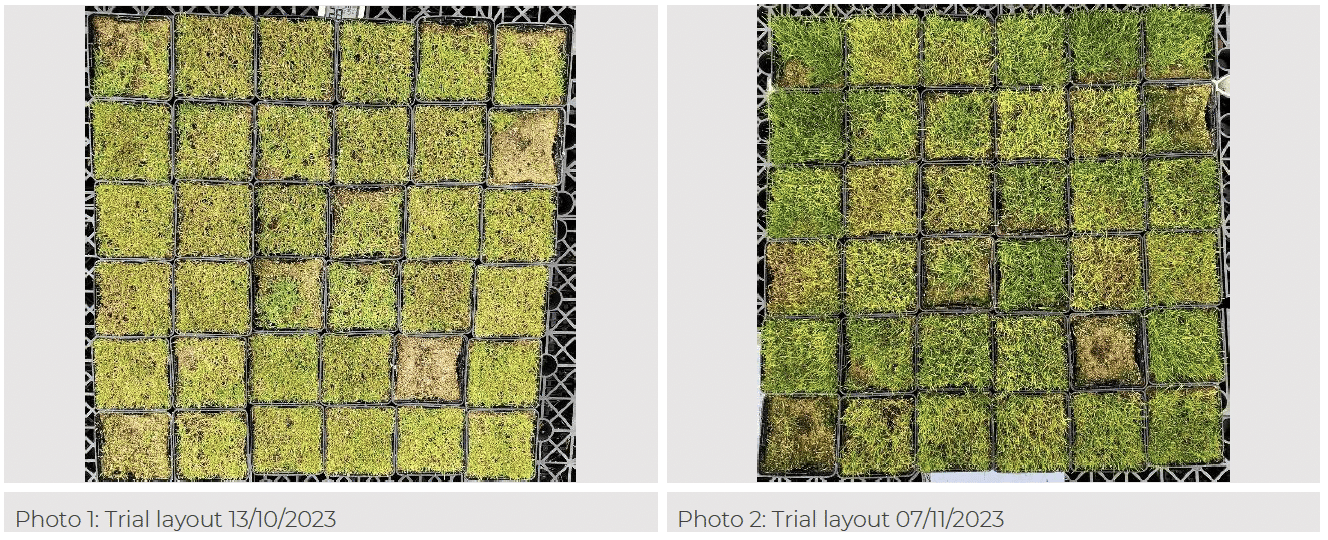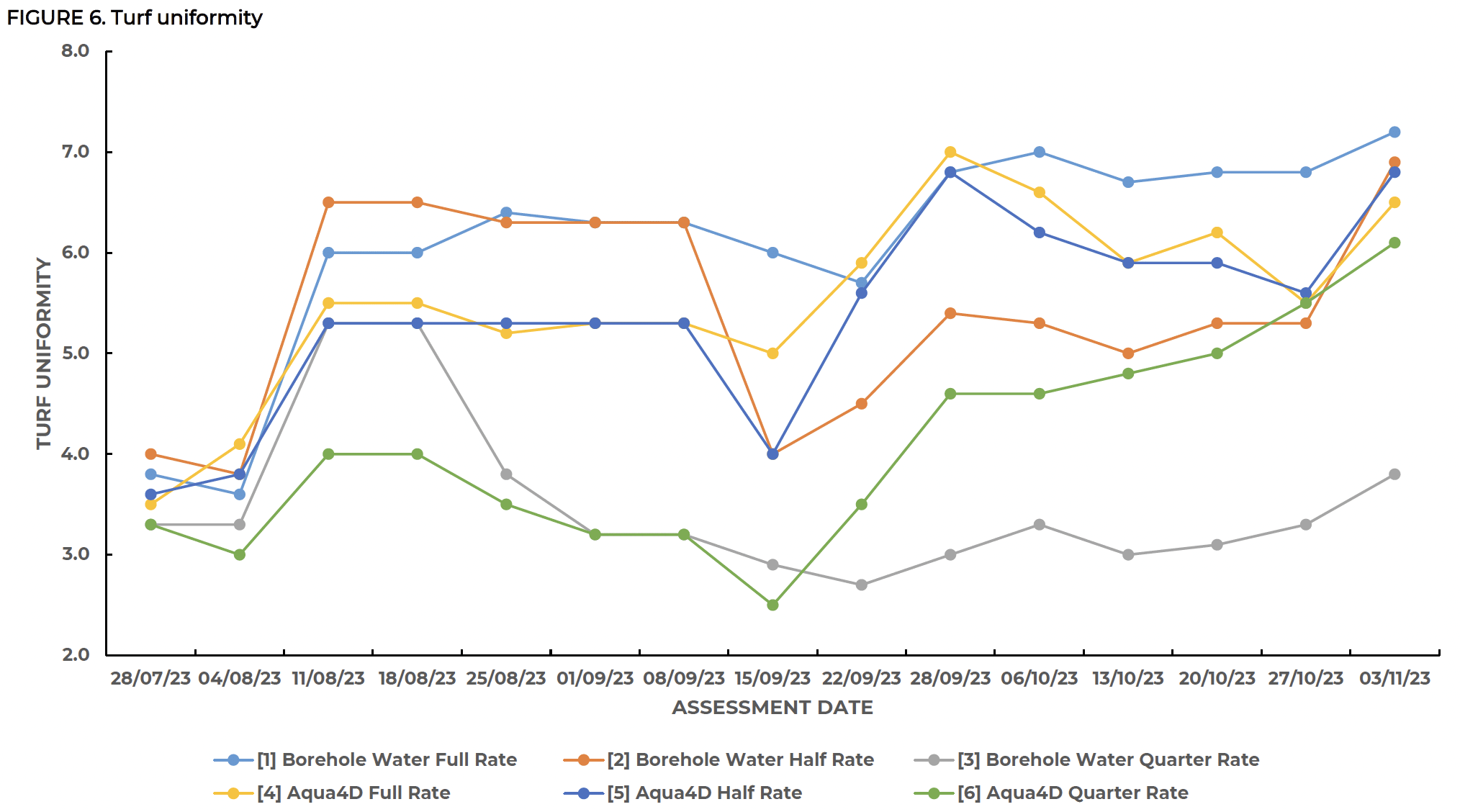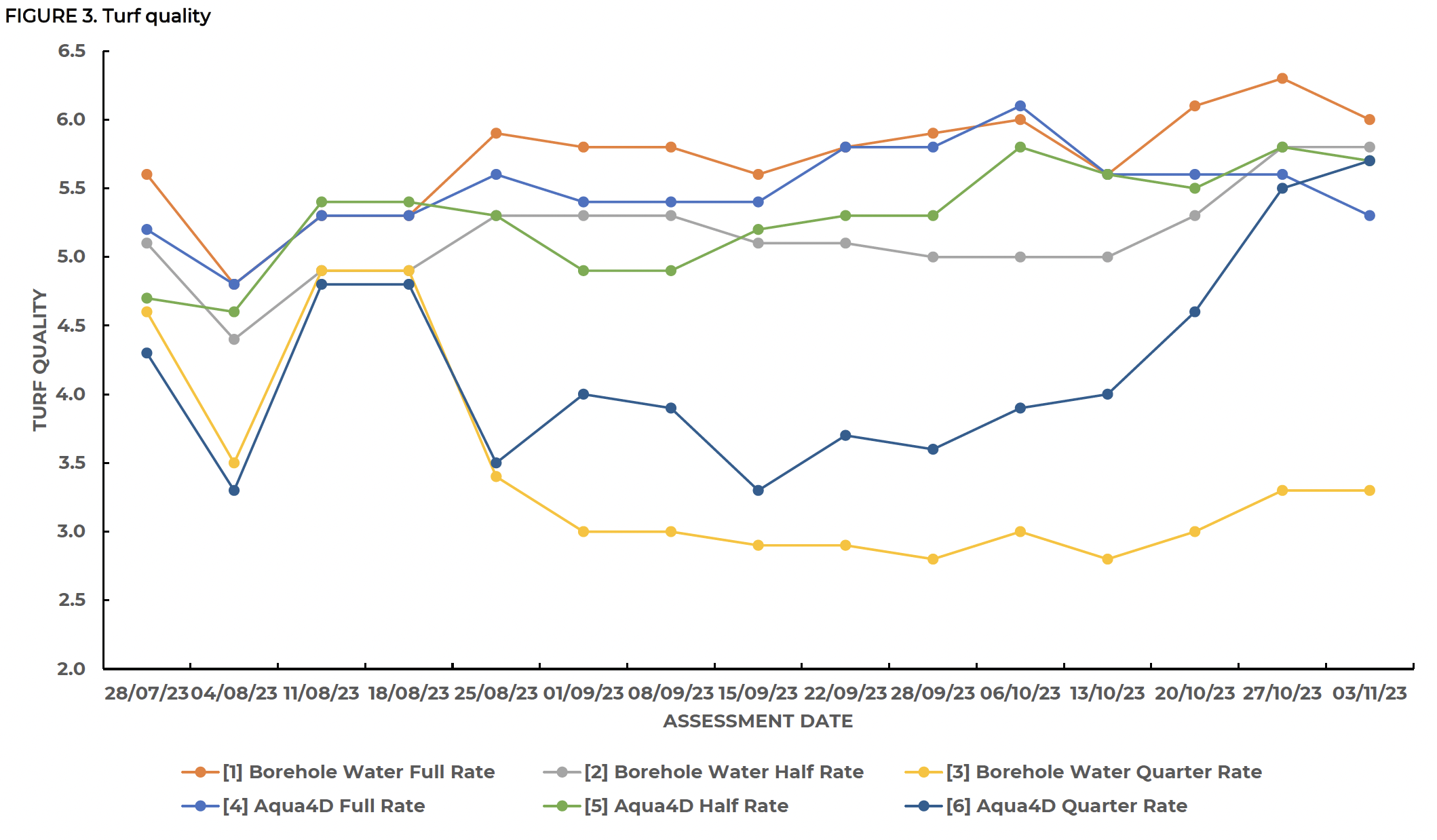This is a summary of a report by Sports Turf Research Institute in the UK – you can read their full research here.
Across the world, water scarcity presents a significant challenge to maintaining lush, green turf in various environments, from athletic fields to golf courses. A study by NASA found that in America, grass was the single largest irrigated “crop”, surpassing corn and wheat.
Highlighting the ongoing quest for sustainable solutions, researchers British researchers at STRI embarked on a trial to investigate the efficacy of AQUA4D, a water treatment technology, in optimizing turf growth and development under varying water availability scenarios. The findings shed light on the potential of AQUA4D to revolutionize turf management practices, particularly in regions facing water constraints.
About the Trial
The research, conducted at the STRI facility in West Yorkshire, sought to compare the effects of different concentrations of borehole water with and without AQUA4D treatment on turf growth and development. The experiment spanned 18 weeks, during which various parameters were meticulously monitored to assess the performance of treated and untreated water on turf quality, density, color, uniformity, and root biomass.
Key Findings
One of the standout revelations from the trial was the pronounced impact of AQUA4D treatment on turf quality and color under conditions of limited water availability. While no significant differences were observed in seed germination and establishment between the treated and untreated groups, AQUA4D-treated water demonstrated superior performance in enhancing turf quality and color, particularly at lower irrigation rates. Notably, AQUA4D treatment at quarter rate exhibited comparable results to full-rate borehole water, highlighting its efficacy in maximizing turf aesthetics even with reduced water inputs.
In terms of turf quality, turf uniformity, as well as turf color, the AQUA4D sections receiving less water showed marked improvements compared to the untreated (borehold) plots.
Root biomass also showed clear improvement, indicating healthier growth, better nutrient uptake, and consistency with real-world cases at sites in OGC Nice, AZ Alkmaar, and several golf courses around Europe.
Implications for Turf Management
The implications of these findings are profound for turf management practices, especially in regions where water conservation is paramount. By harnessing the potential of AQUA4D, turf managers can optimize water usage without compromising on turf quality and aesthetics. This not only offers economic benefits through water savings but also contributes to environmental sustainability by minimizing water wastage.
Future Directions
While the trial provides valuable insights into the efficacy of AQUA4D in enhancing turf growth, further research is warranted to explore its potential across diverse turfgrass species and soil types. Additionally, field trials in real-world settings will offer a more comprehensive understanding of AQUA4D’s performance under varying environmental conditions. By continuing to invest in research and innovation, we can unlock the full potential of AQUA4D in revolutionizing turf management practices worldwide.
Conclusion
In a world grappling with water scarcity and environmental degradation, innovative solutions like AQUA4D offer a beacon of hope for sustainable turf management. The findings from the STRI trial underscore the transformative potential of AQUA4D in enhancing turf growth and development, even in water-limited environments. As we embrace these advancements, we move closer to achieving a greener, more resilient future for our turf landscapes.
Sports Irrigation
Turf Managament
Scientific Study
“AQUA4D-treated water demonstrated superior performance in enhancing turf quality and color, particularly at lower irrigation rates. Notably, AQUA4D treatment at quarter rate exhibited comparable results to full-rate borehole water, highlighting its efficacy in maximizing turf aesthetics even with reduced water inputs.”
Watch: Scott Brooks, Head Groundsman at OGC Nice, explains the transformation of his grass after AQUA4D treatment.






